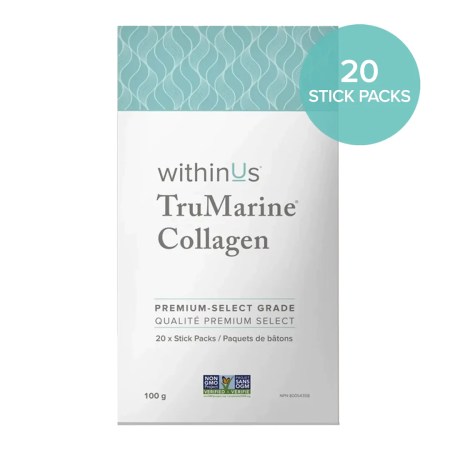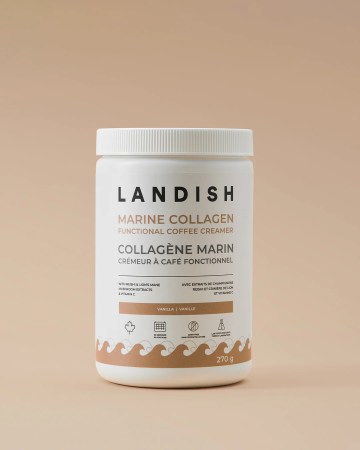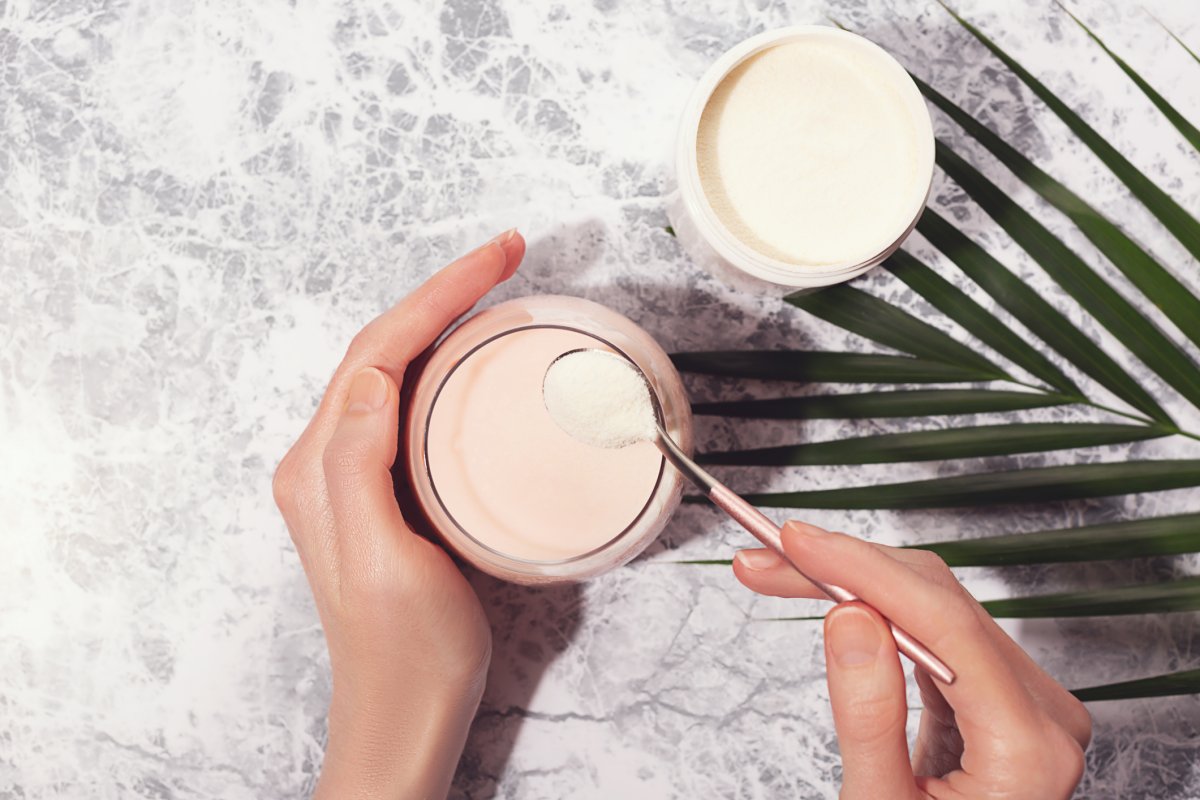The Curator independently decides what topics and products we feature. When you purchase an item through our links, we may earn a commission. Promotions and products are subject to availability and retailer terms.
Collagen is all around—or rather, in us. It’s the most universal structural protein in our skin. Our fervent quest to preserve and restore it is the fuel driving a multi-billion-dollar beauty supplement and skincare industry.

But does it work? Are the collagen-infused coffees and smoothies really making a difference?
I decided to consult with Dr. Danny Guo, a dermatologist and the Medical Director at Rejuvenation Medical in Calgary. We talked about what happens to the collagen in our skin as we age and how to fight against depletion.
Time is not on our side
In his practice, Dr. Guo is asked daily about collagen loss in one way or another. It’s not unusual for a patient to come to the clinic and point to the fine lines on their face, rings on their neck, or crepey skin on their décolleté, inner arms, or backs of hands. With a flicker of earnestness in their eyes, they ask, “Can you fix this?”
This is his cue to launch into a spiel on what collagen is to the skin. He tells me the conversation is similar, regardless of the location of the wrinkles. This vital protein is responsible for our skin’s suppleness, firmness, and texture. It also protects our blood vessels from damage.
The truth, like it or not, is that collagen depletes slowly from the day we are born. Dr. Guo emphasizes, “The rate of decline is really, really low up until age 20.” After that, we lose about one per cent of collagen every single year. If you are a female, brace yourself; you lose about 30 per cent of your remaining collagen within the first five years after menopause.
So, what can we do?
The first step is acceptance. Time and genetics are two things we can’t control. There is no way to stop the aging of our skin entirely. “What we can do is significantly slow it down,” offers Dr. Guo. “But the most important thing is prevention.”
That brings us to the second step: understanding what we can control—foremost, preventing exposure to the sun’s harmful rays. “UV radiation is responsible for 90 per cent of the visible aging of your skin,” warns Dr. Guo. So, “even if you just wear sunscreen, you’re in pretty good shape.”
The third step is to ensure your efforts are not in vain. Investing in clinical skin treatments or in an at-home skincare regime can add up. Aside from sun worship, consuming excessive amounts of alcohol and smoking cigarettes will accelerate the breakdown of collagen in your skin and diminish the long-term results of any supplements or treatments.
How to restore and rebuild collagen
If you’re thinking it’s a matter of adding collagen in or on our bodies, it’s not that straightforward. “If you have a vitamin D deficiency, you can take a vitamin D supplement, which will be absorbed and implemented in your system. Collagen supplements don’t work that way.”
Our bodies produce collagen, so promoting that process from within requires a supply of ingredients to effectively boost it. If you take a closer look at the labels of many collagen supplements, you may (and should) notice that it reads “hydrolyzed collagen.” It’s not collagen in its whole form. It’s collagen peptides; pieces of the whole structure.
“It works similarly to how protein helps build muscle—it’s broken down into amino acids before absorption,” Dr. Guo further elaborates. “Think of it as providing your body with the ‘right building blocks’ to recreate what is needed to replenish collagen in your skin, blood vessels, joints, and other organs.”
What to look for in a supplement
Dr. Guo recommends a hydrolyzed collagen powder, the kind you can mix into a smoothie, coffee, or juice. Dr. Guo cautions that to see results you will need to down those collagen peptides daily, so aside from choosing a collagen source, taste is an important consideration.
Factor in that it takes “at least 12 weeks… sometimes even up to six months” to notice an improvement in your skin. If your skin is in its prime, you are less likely to see a significant improvement.
Now that you know how collagen works in our bodies, and how a supplement can support collagen production, check out this list of mostly Canadian brands that make hydrolyzed collagen powder. We feature one product from each line to highlight the different types of sources available and how they can be used. There’s even a vegan option!














Comments